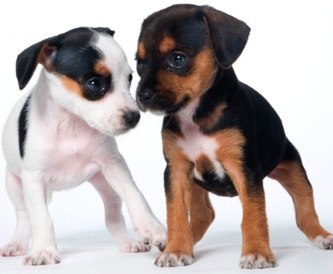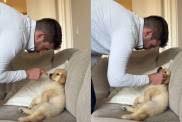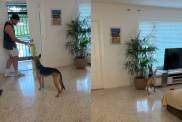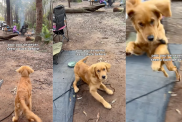As a whole, dogs are superbly adaptive creatures. Just about everywhere you look you will see dogs of all shapes and sizes taking part in all manner of activity with their human companions. But, as impressively skilled as most dogs are at becoming part of the human world, life for a companion dog can be psychologically challenging due to all they must cope with.
Providing your puppy with early and ongoing exposure to controlled, positive experiences with as great a variety of people, places and things as possible is what socialization and habituation are all about. Specifically, socialization refers to people and other animals and habituation to gradual exposure to stimuli such as traffic, vacuum cleaners, and different surfaces and textures. This early, positive exposure is comparable to a coach planning plenty of practice games that are intended to help prepare the players for the real game.
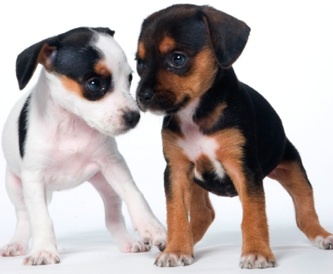
Practice may not make you perfect, but it definitely helps you become the best you can be and the same holds true with socialization and habituation. Genetics plays a major part in a dog’s personality, in the way they respond to stimuli (people, places and things). Some pups are genetically predisposed to be highly inquisitive and bold in the face of new experiences and others to take a more cautious approach. But, environment and education are highly influential and providing your puppy with the opportunity for exposure to all they will be expected to tolerate as an adult will help them more readily take things in stride, to be more easily instructed and guided, and therefore to have more predictable behavior.
Socialization and habituation create a sort of catalogue of information for your dog to draw from throughout their life. The more positive information you install in this catalogue the better equipped they are to handle future experiences. For example, a potentially startling experience, such as a person hopping out of a doorway and popping open an umbrella, can be handled with good ‘bounce back’ when a pup has been provided with adequate and on going socialization and habituation.
A lack of early socialization and habituation can have far reaching negative effects on even the most even-tempered pup. In addition to stress, fear and even aggression, the poor emotional state of a dog like this inhibits learning and the ability to be guided by their people.
Open the door wide for your pup to explore the world and participate in it with confidence by planning a socialization and habituation protocol that is the foundation of your pup’s happy future.
Andrea Arden is an animal behavior counselor, rescuer, author, speaker, and a resident pet expert on the Today Show. For more, check out her website, AndreaArden.com.
